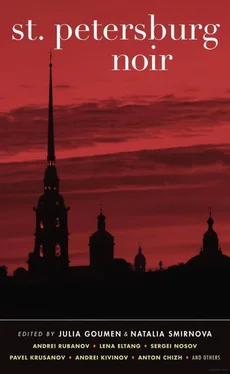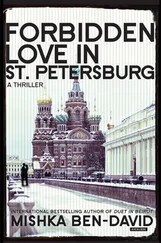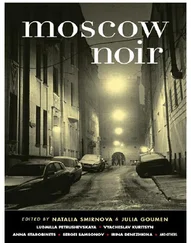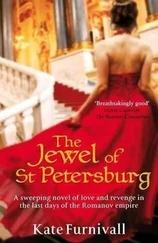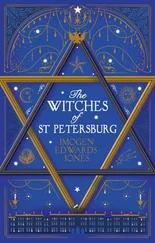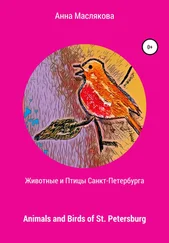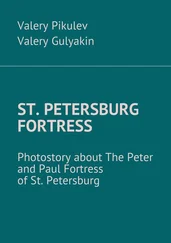Ryazan? Of all the nonsense! He had been born in Constantinople.
~ * ~
During the second year of the revolution, Seriozha met Morozov, the Schlüsselburg prisoner who had just been released into the world. Captivity seemed only to have preserved the elderly member of the People’s Freedom Party—he was fresh and ruddy, with a formidable snow-white beard. Morozov had dedicated himself to studying errors in historical chronicles. In them he had found references to him—Seriozha. He found out that the copyists had mixed up his documents (if only he knew how much this would cost him), changing “Constantinople” to “Konstantinovo.”
It was here they had strolled, to their left the gloomy bulk of St. Isaac’s Cathedral, the famed church; and to their right, this very hotel, where fates were decided. The old man sought to avenge history, and decided to start with him, the poet.
Underneath their feet grew the sickly grass of the streets and squares of Petrograd.
The old man waited for an answer.
Seriozha smiled, peering into his eyes. Who would ever believe you, old man? Unless maybe one day some academic follows your lead and starts shuffling the deck of centuries and scepters—but no one will believe him either.
He himself could recall in great detail, though, that hot May, five hundred years ago, when the crackling of fire, the yelps of Fatih’s warriors, and the shrieks of the inhabitants surrounded the temple. The doors were torn off their hinges with a thunderous clatter and a crowd of Janissaries broke inside. There were a few who stood out even within the ranks of Fatih’s select band of cutthroats. The boy knew that these warriors who looked like dismounted horsemen were dark angels. Their faces were covered in slashes, as though carved out of wood.
~ * ~
The sounds of the Liturgy had not yet died away, and one by one the priests entered the stone masonry which parted to let them pass, carrying the holy gifts before them. The youth rushed in after them, but an old monk grabbed him by the arm and led him through a long underground passage toward the sea. They ran past cavernous cisterns, and heavy droplets from the ceiling beat down on their backs.
The monk put him into a fishing boat with two Greeks who watched solemnly as the city burned.
The two were brothers—Yanaki and Stavraki. They took the young boy along the coast, careful not to lose sight of land. He read them Greek and Latin poetry. The sea censored some of his words, filling the boy’s mouth with the salty water of the waves. They soon found themselves in a strange land where the steppe met the water, and the boy took his first breath of foreign air. With each step toward the North, something inside him changed. He felt his soul transforming. His body would remain unchanged forever.
He became the Wandering Russian, a lonely soul attached not to earthly love, but to that of the heavens. Yet he never forgot the wooden horsemen, for it was said of them in the Holy Book: And there was a great battle in heaven—Michael and his angels fought with the dragon. That battle was eternal
~ * ~
The visitor in black was mumbling something, looking at him from time to time. He must have thought Seriozha was completely drunk.
The boy who had come by the day before had thought so too. Poetry was what had led him through life; but now he would have to end this phase. He would be mistaken about time, however. The Wandering Russian had been duped. Duped like a little boy whose daddy takes him to the big city. The little boy runs away on the sly and goes to the bazaar, where he is swindled out of all his coins wrapped up in a little scrap of cloth.
Poetry was his destiny; but there would be no poetry here.
Without poetry, eternity means nothing, and everything else is meaningless too. Like the time he fought Celery, the famed poet, and suddenly felt his opponent’s special hatred for him. It was only now that he realized Celery had hated not him, but fate. Fate saw to it that the Wandering Jew, the eternal Jewish poet, was not he, Celery, but the lowly Mosstamp. Celery couldn’t fully comprehend it, but with his sensitive nature he felt fate’s cruelty. It was fate he was fighting, not his comrade and fellow poet.
His fate was that of a man destined to die in his own bed, having known early love and late love, having suffered abuse and praise. But whereas he would die forever, Mosstamp would crawl out from under a mountain of dead bodies during his exile to the Far East, and wander the earth forever.
The man behind the door shuffled his feet awkwardly, anticipating the business at hand, and Seriozha grew very sad. He felt offended by the crudeness of it all. He recalled meeting the Wandering Scotsman at a bar in Berlin. Seriozha immediately recognized him by his wavy hair. They roamed around Berlin all night long. In his cups, the Scotsman showed him Japanese Bartitsu moves. Growing animated, the Scotsman pulled a sword out of his bag, which he waved about like a hay mower on the banks of the Oka. In one fluid motion, Seriozha dove sideways, jabbing a fork he’d stolen from a restaurant into the man’s side. The Scotsman stood there blinking, hiccuping, waiting for the wound to heal.
He eventually admitted defeat and they read poetry until dawn. The Wandering Scotsman read a poem by his friend about the dry heat of Persia and doe-eyed maidens whose arms wound about like snakes. And Seriozha read the Scottish poem about a wayfarer caught out on a winter night, and a northern maiden who takes the stranger in; how she drifts off to sleep between him and the wall of her humble dwelling. In the morning she sews the wayfarer a shirt, knowing that she will never see him again. And Seriozha knew that those lines were about them, about the shelterless life of eternally wandering poets. As they parted ways on a bridge over the Spree, Seriozha gave the Scotsman the ill-begotten fork, which the Scotsman put in his sword case. Robert MacLeod, or Burns, as Seriozha usually called him, disappeared with his ungainly sword into the rays of the German sunrise, the wind ruffling his hair.
Now, sitting here in a false trap, Seriozha knew that he could kill both of the Cheka officers (for he had no doubt who they were), pluck them from life like two worm-eaten mushrooms from the soil, leaving only small, nearly invisible indentations in reality. He could carve them out, using, say, a fork. Or a spoon. No, the spoon had disappeared during his extrasensory experiments.
But he didn’t need to do that. He was a poet, and so was moved by a greater aim than the bestial thirst for blood.
He had to leave his place, like a beast must leave its lair, because he had chosen the wrong word to rhyme with revolution.
His visitor produced a grimy book from the depths of his overcoat, and thumbing through the tattered pages began to read some filth aloud. It was probably one of Galyas tearful letters (usually a mixture of complaints and pleas). It was in bad taste, and embarrassing in the extreme. He allowed himself not to listen any further to these stories of happiness and broken arms, of wooden horsemen.
He really did know who the wooden horsemen were, who appeared suddenly in tall grass just as he was getting off the train at Konstantinovo. He had to convince his relatives of his own existence (which he did); but the wooden horsemen were always after him wherever he went. One of them he recognized as Omar, one of Fatih’s warriors, who had almost killed him in the church five hundred years ago.
Wooden horsemen—now, that would be truly terrifying, because they alone had power over wandering poets. One of them had chased after the automobile he rode in with his wife. The wooden horseman started losing ground. He knew he could not reach Seriozha with his crescent sword, so he tugged at the woman’s blue scarf, pulling her out of the car and under the hooves.
Читать дальше
